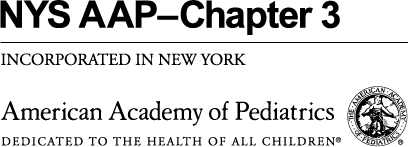Dr. Louis Z. Cooper, Professor Emeritus of Pediatrics at Columbia University College of Physicians & Surgeons, has had a long, illustrious, and highly successful career as advocate and as physician. He and colleagues were able to get several national legislative changes passed that contribute significantly to our public health and fitness. He worked extensively on immunization, the Child Health Insurance Program and its Reauthorization, as well as on issues surrounding children with special needs. He was the President of the American Academy of Pediatrics (AAP) in 2001-2002 and currently chairs the Technical Advisory Group on Immunization of the International Pediatric Association (IPA TAGI).
What is your view on advocacy?
I have been retired for sixteen years now, but work full time as a volunteer pursuing something I started over 50 years ago. That is the global eradication of measles and rubella. Serving as chair of the IPA TAGI while representing the AAP takes me literally all over the world. Endemic measles, rubella and congenital rubella syndrome (CRS) have been eliminated in the western hemisphere now for the most part, but globally, over 300 kids die each day from perfectly preventable measles and measles-related complications and a similar number are born daily with CRS.
My view of advocacy as a physician and as a pediatrician in particular, is doing whatever is necessary to achieve our mission to protect the health of our patients. Advocacy, then, is one critical tool to make that happen. The most important message I could give to you is that my advocacy is really related to following the needs of my patients and their families. It’s about seeing our patients and sorting out their needs. Health is much more complicated than what goes on in clinic or in the hospital.
Why did you choose pediatrics?
I had a lot of trouble in med school sorting out what to do. At the time, cardiac surgery was in its infancy and was very exciting. But as a subintern I was helping an intern repair a hernia on an elderly gentleman, and it took so long that he went into atrial fibrillation. It was at that point that I moved to internal medicine.
In 1955, I worked in a polio ward, and the experience was very sobering. Cardiac surgery was popular, but immunization was the other big development. Some of my colleagues were working in infectious disease and immunization. During my residency staphylococcal disease was wiping out nurseries and young people at alarming rates, and I thought that that would be the best place for me to be. I could be helping children and getting proper immunization out to the people who really needed it.
Do you have any particular success stories?
The best thing I can tell you is to know and rely on the science – go where the science indicates. No individual can do advocacy work by himself/herself. It’s important to have an institutional base that can help you create partnerships. If the science is good and the institutional base is trustworthy, and you can work with other people, that’s when you become a successful advocate. But it really comes down to starting with good science! Have good values and good instincts, have good and appropriate institutional bases and form strong partnerships.

